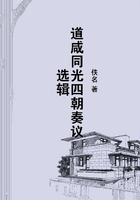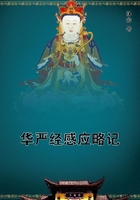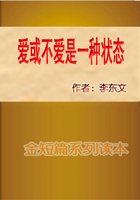Our review of the agreement signed by the prince on his accession to the throne has already reveaLed to us some of the functions of the veche. Questions of war and peace were regularly decided by it. No war could be begun but with the consent of the people, because, in the absence of a regular army, the prince could levy no other force but that of the militia. Treaties of peace and alliance were also signed in the name of the prince and people, as may be seen from the following words used in the treaty of Igor with the Byzantine empire in 945; "This treaty has been concluded by the Grand Duke of Russia, by all the dukes whatsoever and by all the people of the Russian lands."Sometimes, it is true, the duke decided on going to war against the wish of his people, but in such a case he had to rely exclusively on his own military followers, his so-called "drougina," an institution very like the old German "comitatus"(Geleit). As long as the system of land donations remained unknown, and the duke had no other property to distribute among his followers but that taken in time of war, the drougina or comitatus was far from being numerous. Hence the duke was forced to ask the veche for assistance whenever he thought himself obliged to go to war. The veche either agreed to his demand and ordered the levy of military forces, or refused all help; in the latter case the duke had no other alternative but to abandon his project entirely, or to resign his throne. The control in matters of peace and war was maintained by the people so long as the duke had no other troops than the militia. But a kind of regular army had been created by the end of the thirteenth century, owing to the custom of rewarding military service by grants of land. The so-called "pomestnaia" system, which was similar to the Carlovingian system of "benefices," produced in Russia effects similar to those produced in France. The popular militia was superseded by a sort of feudal army, paid not in money but in land. In case of war the duke was not so much interested in having the acquiescence of the people as that of the "men of service," slougilii liudi, who constituted his military force, and corresponded somewhat to the knights in Feudal England. This change, as we shall hereafter see, had a great influence on the future destiny of the Russian folkmote.
Another function of the folkmote, which appears to be peculiar to the Northern principalities, and especially to those of Novgorod and Pscov, is that of legislation. That the legislative functions of the veche were unknown in the Southern principalities of Russia may be seen from the fact, that no mention is made of them in the most ancient code of the country.
The Pravda of Jaroslav in its different versions shows no trace of the interference of the people in matters of legislation; it is the exclusive work of the duke and his councillors. The few amendments introduced into this legal code during the first part of the twelfth century have also no other source but the express desire of the dukes and the decisions of their Doumas or Councils.
The exercise of legislative power by the veches of Novgorod and of Pscov, at least during the fourteenth and fifteenth centuries, is illustrated by two judicial charters, those of 1397and of 1471, which, as is evident from their contents, were drawn up by the popular assembly. The charter of Pscov plainly states in one of its later versions (that of 1467 whenever the posadnik, the supreme judge by the people, has to decide a case to which no existing law applies, he must consult the assembly of the people.
The same veche had the right to annul every article of the judicial charter which no longer met with its approval. Mention of this right is made in the charter itself.
As to judicial powers, they remained unknown to. the Western and Southern the veche, at least in principalities of Russia, which knew no other judges than the duke and the officers whom he appointed. I do not allude to those arbitrators to whom private persons frequently had recourse to settle their differences.
But in Novgorod, the fact of the election of the chief judge, the posadnik, by a popular vote, shows that the people were not indifferent to the exercise of judicial power. Appointed as he was by the folkmote, the posadnik could be judged by no other tribunal than the folkmote itself. Cases of high treason were also referred to the popular assembly just as they were in Poland and Bohemia.
What has been stated establishes beyond a doubt the great extent of the rights and privileges belonging to the folkmote in the Northern principalities of Russia. The same cannot be said of some Western principalities, such as those of Volhynia and Galicia. The example of Poland, where the aristocracy was very powerful, induced the boyars of those two countries to make more than one attempt to concentrate in their own hands the chief rights of sovereignty. The large estates which they possessed and the considerable revenues, which the rich black soil of the country yearly secured to them, greatly favoured their oligarchical aspirations. In 1210, they seem to have attained their ends. The dynasty of Rurik had ceased to rule over the country, and a boyar, a member of the local aristocracy, had been raised to the throne. But his rule did not last long. His contemporaries, the other rulers, looked upon his elevation as illegal, and the King of Poland was the first to declare that a boyar had no right to occupy a throne. To oppose the oligarchy of the boyars Duke Daniel, in 1230, convened the popular assembly, the veche and with the help afforded him by people, fought the army of the boyars and reduced them to obedience. This is, however, the only case in which the veche seems to have played any part in the political history of the country. The power of the nobles prevented any further development in that direction, and when the principality passed into the hands of the King of Poland, it was already under the yoke of the aristocracy.














